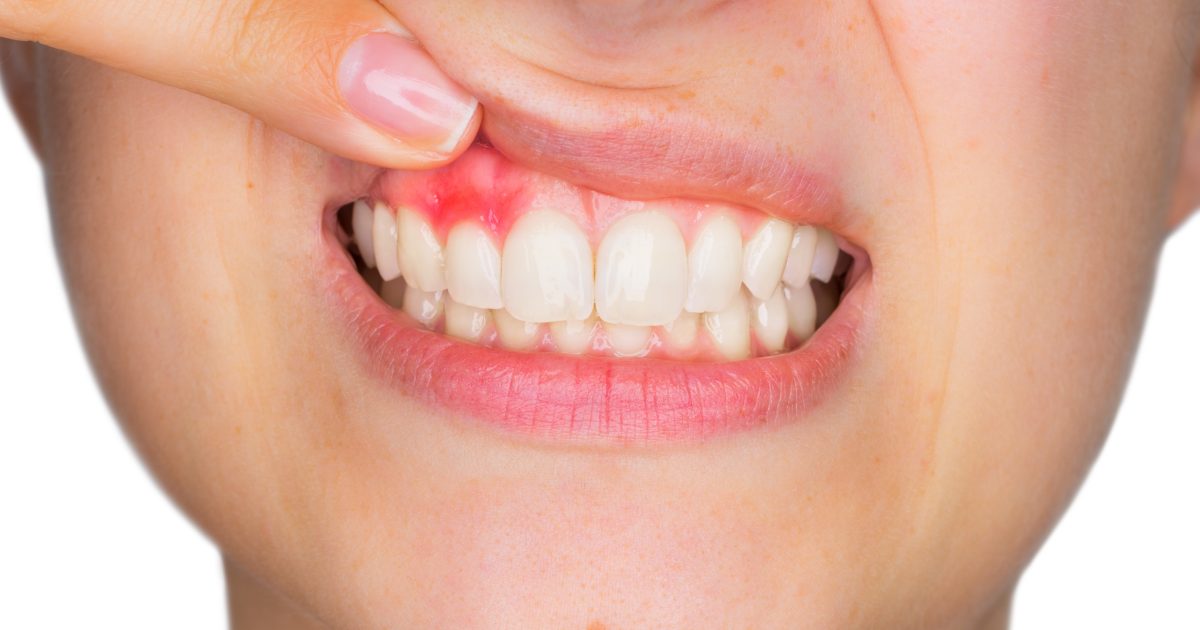Impressive Health Benefits Of Manuka Honey
Manuka honey comes from the manuka plant, officially known as Leptospermum scoparium. The plant is a bush native to New Zealand and Australia. Manuka honey is manufactured exclusively in New Zealand, and the manuka plant only blooms for a few weeks each year. Methylglyoxal is a compound that occurs naturally in manuka honey, and it is believed to have healing and medicinal properties. The compound forms from the plant nectar and increases as the honey ripens. Manuka honey is sold in varying grades of potency according to how much methylglyoxal is in the product. These grades are known as UMF (unique Manuka factor) ratings and range from zero to sixteen, where sixteen is considered a superior quality. Research into the health benefits of manuka honey is ongoing, and anecdotal evidence from patients suggests the honey aids health in the ways discussed below.
Soothes Sore Throats

Patients often use honey to relieve the pain associated with a sore throat, and many report manuka honey soothes sore throats as well. When choosing manuka honey for sore throat, individuals should opt for the highest UMF rating possible. Experts recommend stirring a teaspoon of manuka honey into herbal tea (with or without lemon) or boiling water, and patients may wish to do this once or twice a day. Some patients may want to take a teaspoon of manuka honey plain each morning, particularly if their sore throat is accompanied by a cough. Studies have suggested consuming plain manuka honey may act as an effective natural cough suppressant. While manuka honey can be an effective home remedy, patients should see their physician if their sore throat worsens or lasts longer than three days. In particular, they should seek medical care for a sore throat accompanied by stomach pain or a fever, both of which could potentially be signs of a more serious condition that needs antibiotics.
Learn more about the health benefits of manuka honey now.
Assists With Acne

Manuka honey has antibacterial properties and assists with acne treatment. This particular type of honey has a low pH, and using it on the skin helps to balance the body's pH. This can lower skin inflammation, calming existing breakouts and reducing the risk of future ones. The antibacterial properties of manuka honey help clean the skin, and it works particularly well when used as part of a face mask or added to an existing skincare routine. Unlike other cleansers, manuka honey does not dry out the skin or cause irritation. The honey can help speed the healing of inflamed or painful acne. Individuals planning to use manuka as part of their skincare routine for acne should try applying a small amount to their hand first. About an hour after application, they should check their hand to make sure redness is not present; this may indicate they are allergic to honey. While using manuka honey can help with mild cases or infrequent outbreaks of acne, individuals who struggle with persistent acne may wish to consider seeing a dermatologist to discuss additional treatment options. This is particularly important if the acne is severe enough to leave scars.
Continue for more information on how manuka honey benefits health.
Benefits Wound Healing

Several studies have shown the use of manuka honey benefits wound healing. In fact, some healthcare professionals who specialize in wound care have reported anecdotally that manuka honey heals deep cuts and scrapes that have not responded to other treatments. Manuka honey may help in the treatment of burns, pressure sores, rashes, boils, and skin ulcers. In 2007, the Food and Drug Administration approved manuka honey as a recommended treatment option for wound healing. Researchers have noted manuka honey has the ability to release hydrogen peroxide, and this allows it to kill bacteria and stop the spread of any existing skin infections. In addition to applying manuka honey directly to the skin, healthcare professionals also use wound dressings pre-treated with this honey. Manuka reduces the healing time for burns, and it can also drastically reduce the scarring that may occur due to a wound. It is important to note patients hoping to use honey for wound treatment should only use manuka honey. In contrast to manuka honey, regular table honey often contains high levels of high fructose corn syrup, an ingredient that can cause infections to spread.
Uncover the next health benefit of manuka honey now.
Prevention Of Gastric Ulcers

Recent research has suggested manuka honey may play a role in the prevention of gastric ulcers, which are a type of peptic ulcer located on the inside of the stomach lining. Up to seventy-five percent of patients who have gastric ulcers may have no symptoms. When symptoms of a gastric ulcer are present, they typically include nausea, bloating, or vomiting. Some patients also have pain in the upper abdominal area. Long-term use of non-steroidal anti-inflammatory medications can lead to the development of a gastric ulcer. However, the main cause of gastric ulcers is a bacteria known as H. pylori, and experts believe up to forty percent of American adults may be infected with this bacteria. A recent study in rats found the flavonoids and antioxidants in manuka honey helped protect the body from the formation of gastric ulcers caused by alcohol.
Get to know more about the amazing ways in which manuka honey can benefit health now.
Helps Treat Infections

A growing body of evidence suggests manuka honey helps treat infections. In fact, this type of honey may help doctors in the treatment of antibiotic resistance and superbugs like Methicillin-resistant Staphylococcus aureus (MRSA). Research shows manuka honey can help bacteria become less resistant to antibiotics, and its antimicrobial properties are effective against potentially fatal infections such as Staphylococcus aureus and Pseudomonas aeruginosa. These bacteria are two of the most common infections found in wounds, and both are resistant to antibiotics. When manuka honey is used on these two types of bacteria, studies demonstrate it prevents the bacteria from attaching to skin tissues, thereby preventing the first step of the infection process.
Discover additional information regarding how manuka honey can benefiit an individual's health now.
Reduces Tooth Decay

Studies have shown manuka honey reduces tooth decay and promotes a healthy oral environment. Although manuka honey contains sugar, it functions in a different manner to other sugars. Traditional sugars such as white, cane, and brown sugar all reduce the mouth's pH, making teeth vulnerable to a process known as demineralization, which damages the enamel and can result in the formation of tooth decay. Manuka honey helps to inhibit the growth of a specific bacteria that causes plaque formation, and research indicates it is just as effective as chlorhexidine, a type of antibacterial mouthwash, in minimizing plaque. Patients who use manuka honey as part of their oral care routine should select a high-grade of this type of honey, and they should see their dentist regularly for routine examinations to detect potential signs of decay.
Keep reading to reveal more delicious health benefits of manuka honey now.
Lessens Gum Inflammation

Some research indicates manuka honey lessens gum inflammation, also known as gingivitis. This condition is a mild form of gum disease, and it impacts approximately seventy-five percent of individuals over thirty-five years old. Potential indicators of gingivitis include swelling, bleeding, or pain in the gums. These symptoms may be especially noticeable after brushing and flossing. Patients may also develop deep pockets, abnormal areas of space between the teeth and gums. Bad breath, receding gums, and loose teeth may also be present. Individuals who wish to use manuka honey as a method of minimizing gum inflammation typically choose to apply a small amount directly to the gums, focusing on areas of concern. In conjunction with this routine, patients should continue to brush with a fluoride toothpaste at least twice a day, and flossing is recommended at least once per day. If the patient notices their gums start to bleed more than usual or cause increasing pain, a dentist should be consulted promptly.
Learn more about how manuka honey can greatly benefit health now.
Reduces Symptoms Of Irritable Bowel Syndrome

Scientists have recently suggested manuka honey reduces symptoms of irritable bowel syndrome, including abdominal pain and cramping, diarrhea, constipation, and bloating. In animal studies on rats with irritable bowel syndrome, improvements in antioxidant levels and a reduction in inflammation were both observed. Other studies have demonstrated manuka honey can kill a type of bacteria called Clostridium difficile. This bacteria can inflame the bowel and cause severe diarrhea, and it is usually treated with antibiotics. Encouraged by the results of the study, scientists are currently investigating whether it would be an effective treatment method for individuals with irritable bowel syndrome and related conditions. Test tube research shows manuka honey can kill H. pylori, a bacteria associated with gastric ulcers and bloating. Patients experiencing gastrointestinal symptoms should see a physician for an accurate diagnosis. If irritable bowel syndrome is confirmed, individuals wishing to incorporate manuka honey into a treatment plan should seek medical advice on the most appropriate way of doing this.
Uncover additional health benefits of manuka honey now.
May Treat Cystic Fibrosis Symptoms

Cystic fibrosis is a genetic disorder that causes progressive lung damage and can inhibit an individual's ability to breathe. Patients with this condition typically have an excessive level of very thick mucus in their lungs, and they might also experience wheezing, shortness of breath, persistent infections of the upper respiratory system, and a chronic cough. Although cystic fibrosis cannot be cured, studies suggest manuka honey may treat cystic fibrosis symptoms and help patients have a better quality of life. For example, research shows manuka honey can inhibit the growth of both Pseudomonas aeruginosa and Burkholderia spp., two types of bacteria associated with particularly serious upper respiratory infections in vulnerable patient populations, including patients with cystic fibrosis. A small study of subjects with cystic fibrosis demonstrated manuka honey worked particularly well when used as a symptom management tool in conjunction with antibiotics. Antibiotics are routinely given to patients with cystic fibrosis when a lung infection is present. Patients with this condition should always consult their healthcare team to make sure manuka honey is appropriate for their symptoms.
Learn more about the ways in which manuka honey can benefit an individual's health now.
Reduces Coughing

Anecdotal evidence and scientific studies both indicate manuka honey reduces coughing. Coughing is the body's way of clearing mucus, and a cough can be dry or productive (with phlegm). A study of children with upper respiratory infections and coughing showed administering as much as two teaspoons (ten milliliters) of honey near bedtime resulted in decreased nighttime coughing and improved sleep. The study compared the effectiveness of the honey to dextromethorphan, a common over-the-counter cough suppressant, and both were found to be equally effective for cough suppression. Health organizations in the United Kingdom routinely advocate the use of honey (including manuka honey) as the first line of treatment for coughs and sore throats, and experts believe manuka honey could be a valuable tool in treating minor respiratory illnesses without the use of antibiotics. Since manuka honey contains sugar, patients with diabetes may wish to consult their doctors about how it could impact their blood sugar readings. Clinicians also recommend that honey is not given to children under one year of age due to the small risk infant botulism, a serious form of food poisoning.